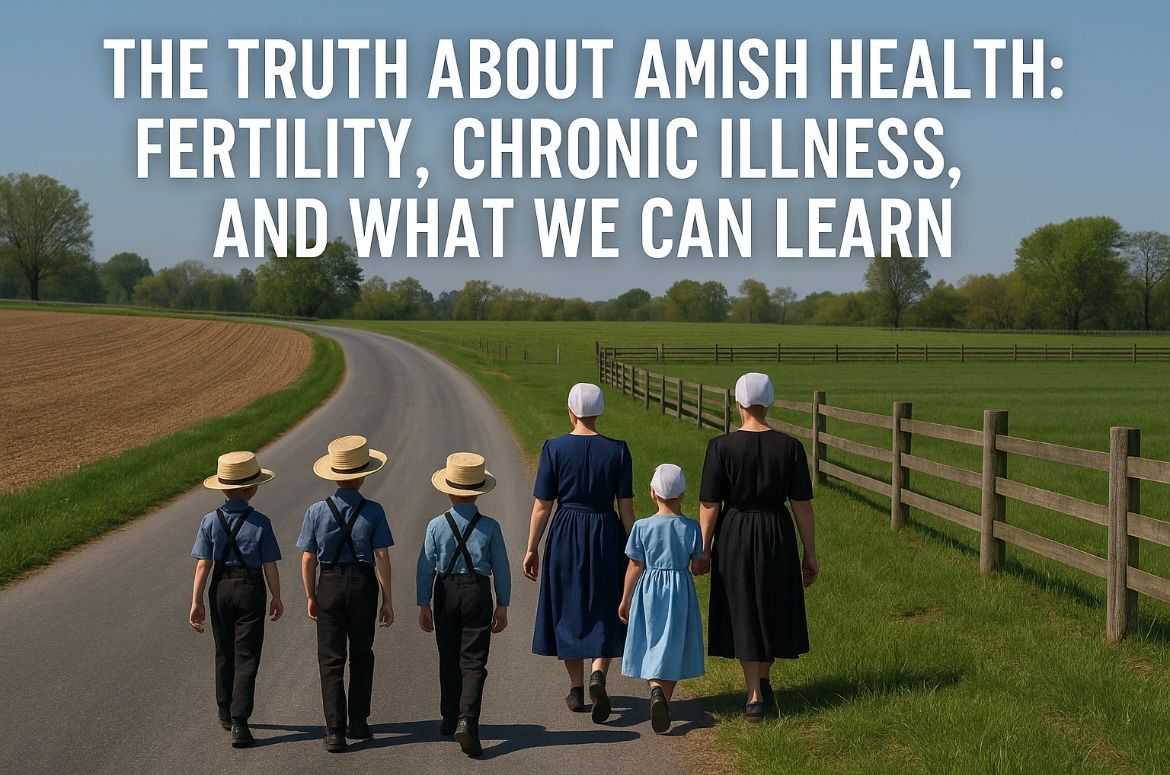The Truth About Amish Health: Fertility, Chronic Illness, and What We Can Learn
Separating fact from fiction about Amish health, fertility, and chronic illness while uncovering lessons modern society can apply.
The Truth About Amish Health: Fertility, Chronic Illness, and What We Can Learn
Introduction: Clearing Up the Myths
It’s not uncommon to see viral claims online that Amish families never struggle with infertility, miscarriages, autism, cancer, diabetes, or ADHD. Some even suggest that Amish women can have 10 or more children without issue because they avoid vaccines and modern medicine. While it makes for a dramatic headline, it’s simply not true. The real story of Amish health is more nuanced and more inspiring than these myths suggest.
Amish Fertility and Family Size
Amish families are known for being large. It’s not unusual to see families with 6–10 children, and some even more. But this is not because the Amish are biologically exempt from infertility or miscarriage. Those issues still occur. The difference comes from cultural factors:
- Early marriages and large families are the norm.
- Birth control is rarely used.
- Pregnancy and childbirth are highly valued.
The result is a higher average number of children per family compared to the general U.S. population—not a total absence of infertility or pregnancy complications.
Do Amish Children Have Autism, ADHD, or Chronic Illness?
Contrary to internet claims, Amish communities are not completely free of autism, ADHD, cancer, or diabetes. Studies and case reports confirm these conditions do exist. However, some rates appear lower compared to the broader U.S. population. Why?
- Lifestyle: Amish families live physically demanding lives, eat mostly homegrown food, and consume far fewer processed products.
- Environment: Reduced exposure to certain industrial toxins and pollutants plays a role.
- Diagnosis & Reporting: Amish families are less likely to seek formal medical diagnoses for developmental or behavioral concerns, which may lead to underreporting of conditions like autism or ADHD.
What About Vaccines?
It’s also a myth that all Amish refuse vaccines. Vaccine use varies widely between communities. Some reject all vaccines, others selectively accept them, and some follow a fairly typical vaccine schedule. It is not accurate to say “the Amish are unvaccinated.”
Health Strengths and Health Risks in Amish Communities
The Amish enjoy certain health advantages:
- Lower obesity rates due to active daily living.
- Fewer lifestyle-driven chronic illnesses like Type 2 diabetes and cardiovascular disease.
- Less exposure to processed foods and alcohol.
But they also face unique health challenges:
- Genetic disorders are more common due to closed communities and intermarriage.
- Infectious diseases can spread more easily when vaccines are declined.
- Limited access to emergency care increases risks during childbirth or serious illness.
Lessons We Can Learn From the Amish
Even though the myths aren’t true, there is still a lot modern society can learn from the Amish way of life:
- Move Your Body Daily. Physical work is built into their lives, not just scheduled at the gym.
- Eat Real Food. Farm-grown, minimally processed foods are the foundation of their diet.
- Limit Toxins. Lower exposure to chemicals, processed ingredients, and industrial pollutants supports better health.
- Value Community. Strong social and family support provides emotional and physical resilience.
Closing Thoughts
The Amish are not immune to infertility, miscarriage, autism, or chronic illness but their lifestyle does create measurable differences in health outcomes. By cutting through the myths, we can focus on what really matters: the habits and cultural values that support vibrant health.
If you’re tired of chasing symptoms and want to explore root-cause healing for your own life, this is exactly what we do at Executive Functional Healing LLC. You don’t need to join an Amish community to reclaim your health you just need to start making the right shifts today.

